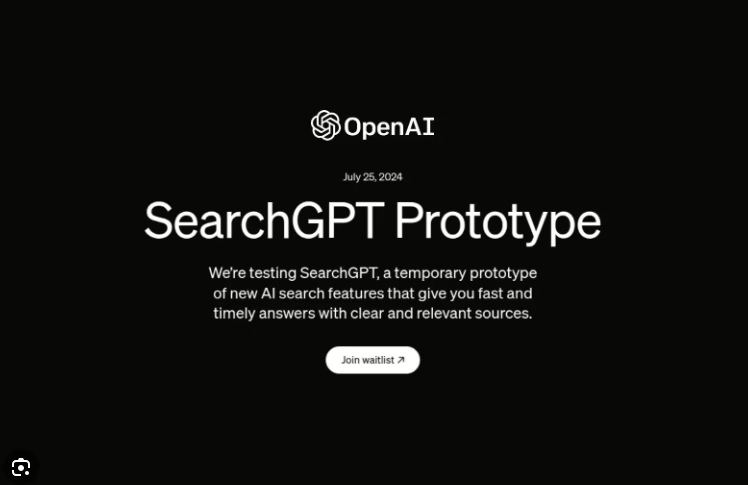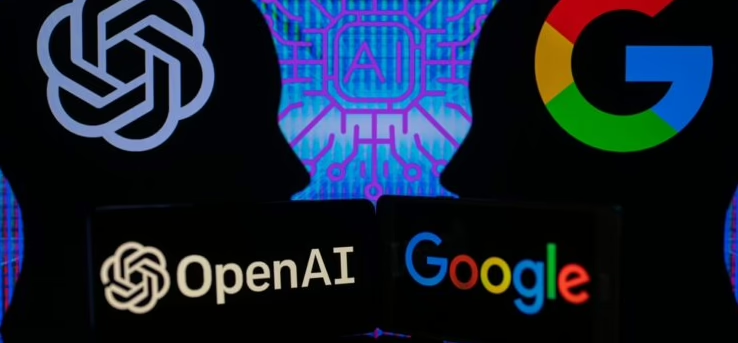OpenAI’s ChatGPT is currently the world’s most popular generative AI platform, and for good reason. Have you used it? Every new version that’s released blows my mind. That said, it’s not perfect.
If you’ve used ChatGPT, especially for technical questions, you’ve probably encountered responses that are somewhat misinformed or, in AI terms, “hallucinated.” Try asking how many “r”s are in the word “strawberry,” and you’ll see what I mean.
But here’s the thing: OpenAI has been working to make ChatGPT as efficient and reliable as Google. And I think it’s finally happening. Enter SearchGPT—a product (or perhaps, a search engine) that could become Google’s biggest competitor.
So, does this mean I’ll never Google anything again? Let’s break it down.
What exactly is searchGPT?
As the name suggests, SearchGPT is an AI-powered search engine. However, unlike traditional search engines such as Google or Bing, it focuses on both user intent and context. Rather than ranking pages based on keyword stuffing or search engine optimisation (SEO) tactics, SearchGPT prioritises content that is highly authoritative and relevant.
Here’s the kicker: with every response it generates, SearchGPT will cite the sources it pulls information from. So, no more blaming ChatGPT for “hallucinated” answers—this time, you can trust where the information is coming from.

Adam Fry, ChatGPT’s search lead, explained it best: “Some amount of hallucinations come from just really not having access to the latest information. Now that it has access to up-to-date data, it can make better decisions around what is the true, factual answer.”
Key Features of SearchGPT include:
- Conversational Interface: With traditional AI, you had to prompt it to be conversational. But with SearchGPT, that’s a given. It’s designed to provide answers in a more natural, dialogue-like format.
- Cited Sources: Instead of presenting a long list of search results, SearchGPT will give you direct answers, backed by the sources it references. You won’t have to waste time sifting through multiple links to find what you need.
- Interactive Experience: You can ask follow-up questions, making the experience feel more like a conversation. This way, you get all the information you need without jumping between pages or dealing with irrelevant search results.
Now, how does this compare with Google’s latest search engine inclusion– AI Overviews.
SearchGPT vs AI Overviews
You’ve probably noticed that when you search something on Google, the first result often features an AI-generated summary pulling key points from a variety of sources. While this can be handy and might seem similar to SearchGPT at first glance, there are some key differences that could make one a better choice depending on what you’re looking for.

First up, depth of content. SearchGPT pulls from multiple sources, including multimedia, to give you a more thorough answer. AI Overviews, on the other hand, is all about quick summaries pulled from non-specific sources, pushing you to click on links if you want more details.
Next, citations. With SearchGPT, you get clear citations with links to the original sources—so you can trust that the info isn’t just pulled out of thin air. AI Overviews also gives links, but doesn’t attribute specific sources, which can feel a bit like a game of “who said that?
Then there’s interactivity. SearchGPT lets you dive deeper with follow-up questions to get more nuanced answers. AI Overviews? It’s a one-and-done deal with no chance for further interaction.
Lastly, let’s talk about content control. SearchGPT has strong rules in place with publishers keeping full control over their content. AI Overviews, however, doesn’t make it clear how content is selected or summarised, so the results can feel a little more mysterious.
What does this mean for marketers?
Now, let’s get to the big question: If more people start using SearchGPT as their go-to search engine, what does that mean for marketing—especially SEO and paid ads?
Well, here’s the thing– Right now, SearchGPT doesn’t offer any paid advertising options, so businesses can’t pay to promote themselves directly on the platform. And when it comes to search results, SearchGPT delivers direct answers rather than a ranked list of links, which means traditional organic SEO efforts don’t apply here either. In other words, the typical SEO game—where you fight for those top spots—just doesn’t exist in the searchGPT world.
Instead, SearchGPT puts a premium on content optimisation and direct engagement. This means that if you’re looking to attract attention, you’ll need to focus on creating high-quality, informative content that directly answers user queries—rather than worrying about climbing the SEO rankings or paying for ad space.
For businesses, this could be a bit of a wake-up call. If SearchGPT becomes the preferred search tool, the old marketing strategies might not be as effective. It’s a less competitive landscape for now, but businesses may need to rethink their approach if they want to stay relevant in this new world of search.
